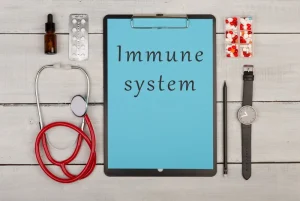
So, the minimal alcohol in red wine vinegar can’t cause any of the effects of alcohol, even if consumed in large quantities. Drinking any amount or type of alcohol has a wide range of short- and long-term effects on your physical and mental health. As a central nervous system depressant, alcohol slows the body’s systems and leads to noticeable changes in cognitive and physical functions.
How much alcohol consumption is too much?
When drinking alcohol, you may become less cautious and more likely to engage in behaviors and take risks you wouldn’t consider when sober. This article discusses the long-term effects of alcohol, including the risks to your physical health and mental well-being. From a glass of wine with dinner to a night out with friends https://ecosoberhouse.com/ or a celebratory toast, alcohol consumption is deeply ingrained in many social practices and cultural traditions worldwide. In the United States, over 84% of adults report drinking alcohol at least once in their lifetime. Every person has their own reasons for drinking or wanting to reduce their alcohol consumption.
Alcohol use: Weighing risks and benefits

Alcohol can cause both short-term effects, such as lowered inhibitions, and long-term effects, including a weakened immune system. Steatotic liver disease develops in about 90% of people who drink more than 1.5 to 2 ounces of alcohol per day. Heavy drinking can also lead to a host of health concerns, like brain damage, heart disease, cirrhosis of the liver and even certain kinds of cancer.

Get help with access
Understanding how alcohol affects the mind, body, and overall health can help you make the most informed decisions about your consumption habits. If you’re concerned with your alcohol consumption and attitude toward drinking, talk to a healthcare provider as a first step. Alcohol use can damage the hippocampus, the part of your brain responsible for memory and learning. Some studies have found that even light or moderate drinking can lead to some deterioration of the hippocampus. 25.8% of people classified their recent consumption habits as binge drinking (excessive drinking in a defined amount of time). We can all experience temporary and long-term effects of alcohol, depending on our consumption.
- There’s also evidence that regular drinking at high-risk levels can make your mental health worse.
- When it comes to the brain, alcohol acts as a depressant to the CNS.
- Having a glass of wine with dinner or a beer at a party here and there isn’t going to destroy your gut.
- Red wine vinegar is made through a fermentation process that starts with red wine.
- The morning after a night of over-imbibing can cause some temporary effects on your brain.
Alcohol poisoning occurs when the body has consumed more alcohol in a short period of time than it can process. The toxic effects of alcohol overwhelm the body and can lead to impairment and some consequences of alcohol even more serious medical side effects, including death in severe cases. Just one or two alcoholic drinks can impair your balance, coordination, impulse control, memory, and decision-making.
Poor EF skills may inhibit an individual’s ability to engage in appropriate coping during times of emotional distress. Understanding gender differences in relation to these dynamic relationships is essential for creating supportive and effective psychosocial interventions. If you’re pregnant or think you could become pregnant, the safest approach is not to drink alcohol at all to keep risks to your baby to a minimum. If a person loses consciousness, don’t leave them to “sleep it off”. Levels of alcohol in the blood can continue rising for 30 to 40 minutes after the last drink, and symptoms can worsen.

Tips for Reducing Alcohol Consumption

Alcohol and the Human Body
- Alcohol is a central nervous system depressant that has immediate effects on the body, like intoxication (feeling drunk) and hangovers (unpleasant aftereffects from drinking).
- Though alcohol seems woven into the fabric of our social lives, drinking can have harmful health effects, even in small doses.
- These effects might not last very long, but that doesn’t make them insignificant.
- Because denial is common, you may feel like you don’t have a problem with drinking.
- For example, it may be used to define the risk of illness or injury based on the number of drinks a person has in a week.
- Since those effects don’t last long, you might not worry much about them, especially if you don’t drink often.